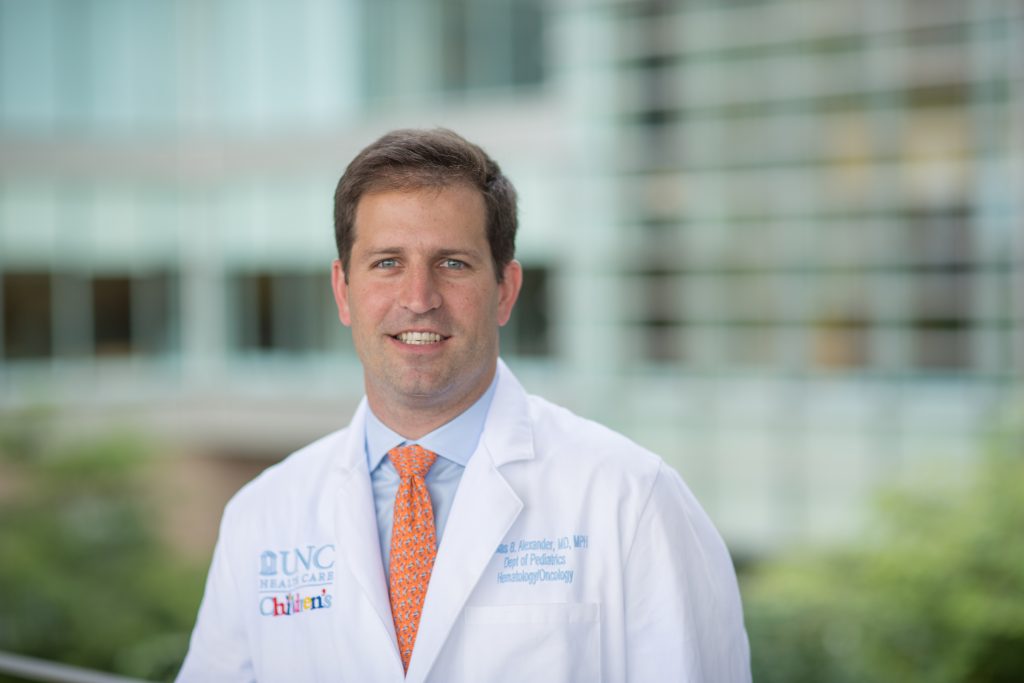UNC Lineberger’s Thomas Alexander, MD, MPH, was a co-author of an article published in Lancet Oncology and led by researchers at St. Jude Children’s Research Hospital. Alexander is a UNC Lineberger member and assistant professor in the UNC School of Medicine Division of Pediatric Hematology/Oncology.

The study reported on the results of a phase 1 dose-escalation study of venetoclax in combination with cytarabine with or without idarubicin in children with relapsed or refractory acute myeloid leukemia. This was the first peer-reviewed publication evaluating venetoclax in a pediatric population, and the first evaluation of this drug in combination with intensive acute myeloid leukemia chemotherapy.
The study enrolled 38 patients between the ages of 3 and 22 years, finding that 14 of 20 patients – or 70 percent – who received the dose recommended for further study had a complete response to the treatment with or without complete hematologic recovery. Two patients at this dose level had a partial response.
The most common grade three or four adverse events were febrile neutropenia, bloodstream infections and invasive fungal infections.
Researchers reported that they began studying the treatment combination because outcomes for children with relapsed or refractory acute myeloid leukemia remain poor, and the drug venetoclax had shown promise in combination with other agents in older adults who cannot take chemotherapy.
Utilizing samples from patients who participated in this trial, further work is ongoing to identify a biological marker to prospectively predict response to venetoclax. Additional studies of venetoclax in children with AML are in development.
Authors and Disclosures
The first author was Seth E. Karol and the senior author was Jeffrey E. Rubnitz. Other authors included Amit Budhraja, Stanley B. Pounds, Kristin Canavera, Lei Wang, Joshua Wolf, Jeffery M. Klco, Paul E. Mead, Soumyasri Das Gupta, Su Y. Kim, Ahmed Hamed Salem, Tammy Palenksi, Norman J. Lacayo, Ching-Hon Pui, and Joseph T. Opferman.
The study was funded by the National Institutes of Health, American Lebanese Syrian Associated Charities, AbbVie, and Gateway for Cancer Research.
